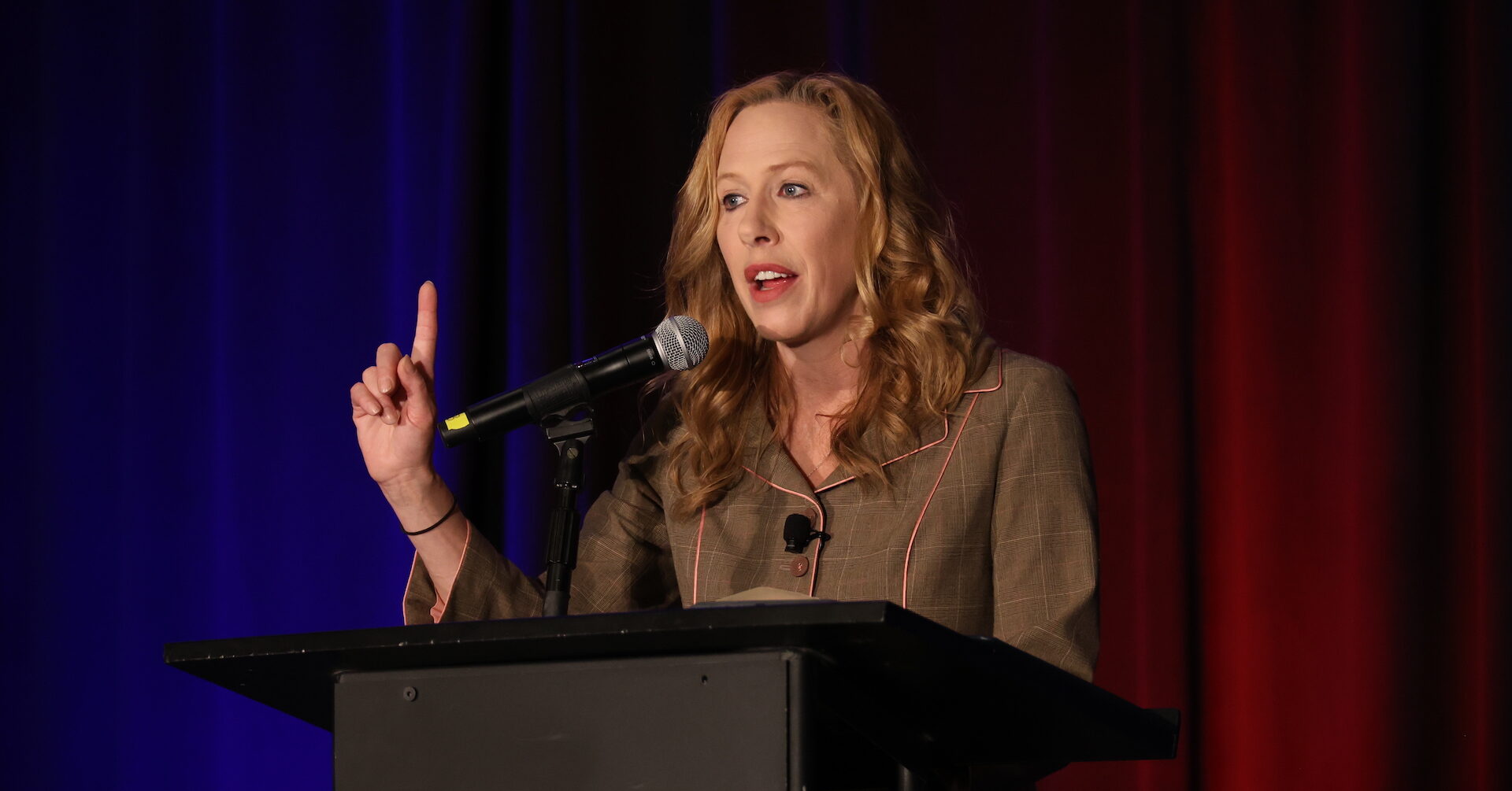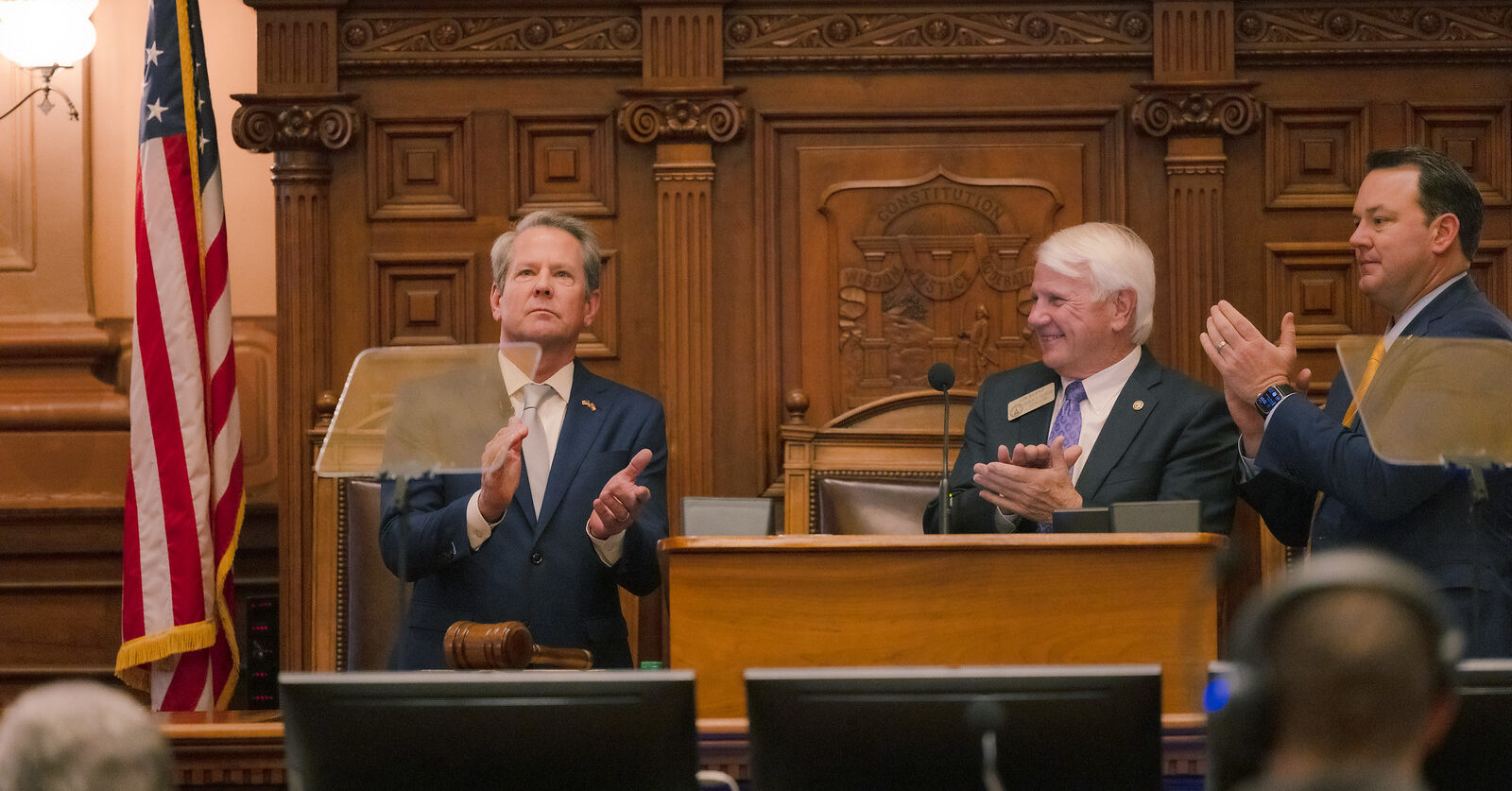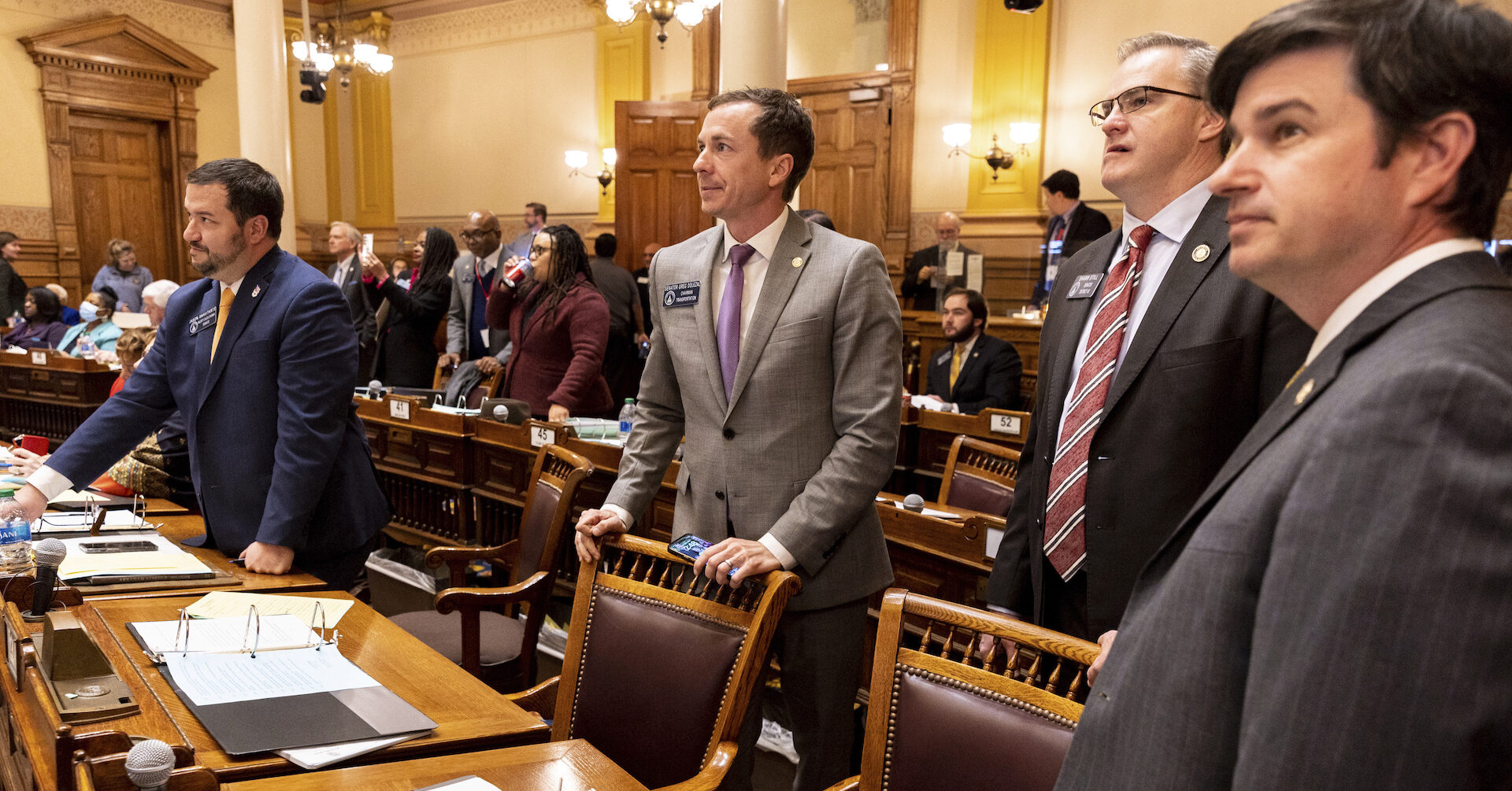Government Accountability

Featured Publication Chapter
Pension Reform
Pension reform should consider long-term solvency, protect employee benefits, balance financial risk and do so at a predictable and affordable cost.
Read More
July 23, 2024 • Blog
Atlanta residents pay too much to get busted water mains
Atlanta residents pay some of the highest water rates in the nation. Yet, water main breaks deprived much of Atlanta of water for several days last month.

July 10, 2024 • Commentary
Congress should increase oversight on runaway bureaucrats
Estimates put the cost of regulations on American businesses at $2 to $3 trillion.

June 27, 2024 • Commentary
Should the General Assembly regulate AI?
We have far more to gain from AI than we have to lose, and policymakers should embrace the opportunity.

June 20, 2024 • Blog
Three civil servants and an embattled city auditor made May a month for waste, fraud and abuse
A review of the latest stories of waste, fraud and abuse in Georgia.

June 13, 2024 • Commentary
Tort reform and Georgia’s judicial nightmare
In 2023, Georgia had the dubious honor of topping the American Tort Reform Association’s list of the country’s “Judicial Hellholes.”

June 5, 2024 • Blog
Confidence in the justice system needed
Every American ought to want our legal system to be operating at the highest possible level, with strong public confidence. That isn’t the case at this moment.

May 16, 2024 • Blog
A ritzy Mercedes, a busted mayor, and the worst Chief Financial Officer you ever saw made April a month for waste, fraud and abuse
A monthly compilation of alleged or documented stories about waste, fraud or abuse of taxpayer money or taxpayer-funded resources throughout Georgia.

May 15, 2024 • Commentary
America needs a sane regulatory environment
Vogtle Units 3 and 4 are the first completely new nuclear reactors brought online in this country in more than three decades.

May 2, 2024 • Commentary
To impact change, look local
Instead of repeatedly pushing the rock up the hill that is the federal government, Kimberley Strassel urges us to think more locally.

May 1, 2024 • Blog
Georgia elections are better-positioned than ever before
When it comes to voting in Georgia, the likelihood of error has gone down as processes and procedures have been tightened up.

April 23, 2024 • Blog
Prison contraband, overpaid school bus drivers and wasted COVID-19 relief money made March a month for waste, fraud and abuse
A monthly compilation of alleged or documented stories about waste, fraud or abuse of taxpayer money or taxpayer-funded resources throughout Georgia.

April 4, 2024 • Blog
Georgia landowner’s eminent domain case could force judges to resolve long-lingering questions
The Georgia Public Service Commission ruled in favor of the railroad in an eminent domain case in Hancock County.

April 3, 2024 • Commentary
One legislative term under new leadership is now complete
This year, even as night fell, both the House and the Senate went much longer stretches than usual without legislating

March 12, 2024 • Blog
Officials at yet another school district in Georgia can’t do basic arithmetic
A monthly recap of the latest stories of waste, fraud and abuse in Georgia.

March 7, 2024 • Commentary
2024 legislative session enters final stretch
With Crossover Day now in the rearview and candidate qualifying ending this week, what will the final weeks of this session hold?

Friday Facts
For more than two decades, the Georgia Public Policy Foundation had published Friday Facts every Friday.
We provide the latest news from Georgia, commentary on the top issues of the day and the latest updates from the Foundation.
Stay informed by signing up below.